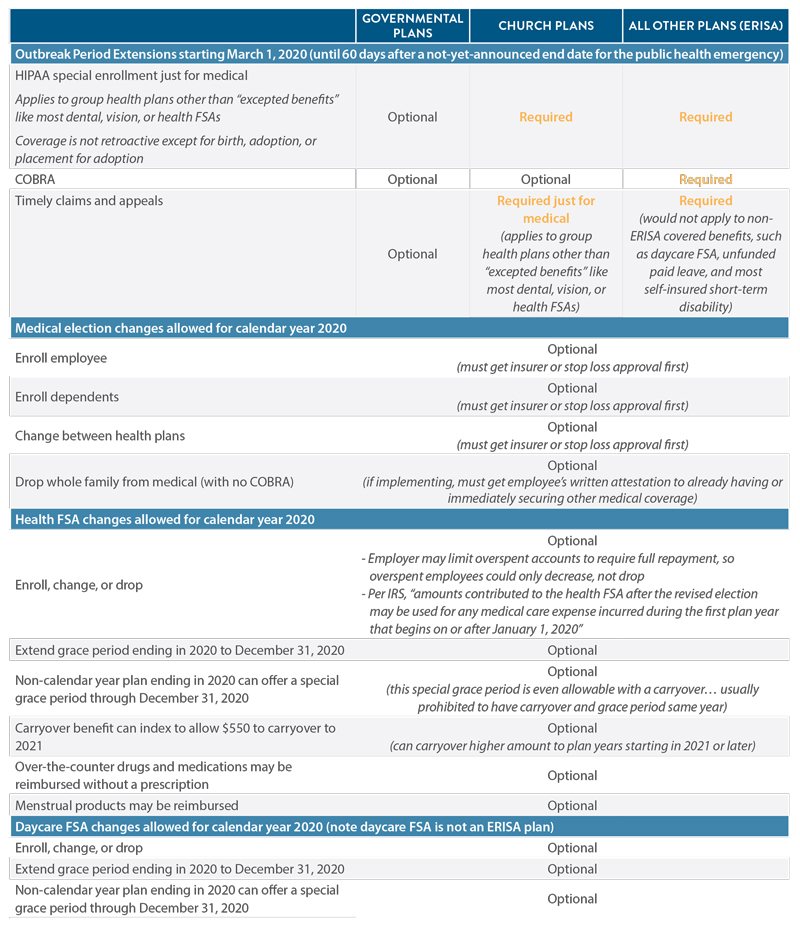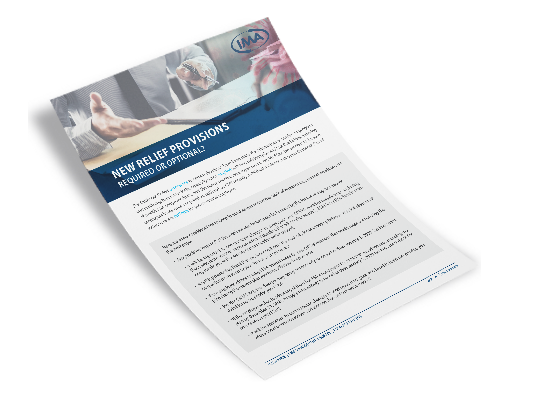JUNE 1, 2020 | 5 MIN READ
New Relief Provisions
OVERVIEW
Deadlines have been extended on some relief provisions, but which changes are required and which are optional?
The Outbreak Period extensions to certain deadlines have been quite the administrative burden to program and confusing to communicate, especially when coupled with new cafeteria plan and FSA flexibilities, indexing of health FSA carryover limits, and the newly reimbursable expenses for health FSAs. We wanted to be sure employers know what’s required vs. optional, as CMS recently published guidance indicating Outbreak Period extensions are optional for governmental employers.
FEATURED ARTICLES
Here are some considerations to keep in mind as you review the table of required vs. optional provisions below.
- Any provision “required” of the employer also by law must be honored by the insurer or stop loss insurer
» It will be important to communicate changes to employees and COBRA qualified beneficiaries, including those who didn’t elect or pay by an affected deadline that fell on/after March 1, 2020 (your IMA Benefit team can provide you with a sample communication we’ve created) - Anything marked optional that involves enrolling in the medical plan or changing between medical plans must be granted permission by your insurer or stop loss first
- If the employer wishes to adopt FSA amendments for new OTC allowances, that would require amending the plan during the current plan year to be effective this plan year
» Per the CARES Act, the changes may apply retroactively to no earlier than January 1, 2020 (an important detail for non-calendar year FSAs) - *If the employer wishes to adopt any of the other FSA amendments for 2020, that would require amending the
plan by December 31, 2021, to apply retroactively to no earlier than January 1, 2020 (an important detail for
non-calendar year FSAs)
» It will be important to communicate changes to employees now (your IMA Benefits team can provide you with a sample communication and election change form we’ve created)

Please be advised that this whitepaper is an educational and informational resource only. The views and statements expressed herein are not to be construed as legal advice from the authors or IMA and such communication is not protected under the attorney client privilege. Recipients should seek specific legal advice from competent legal counsel of your choice.
